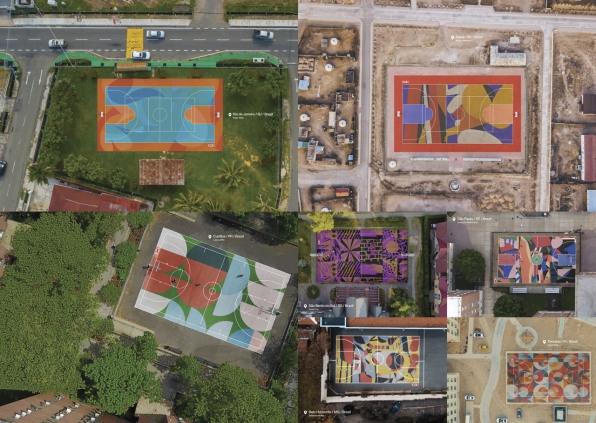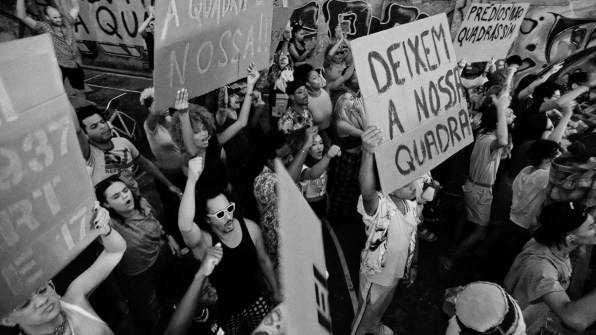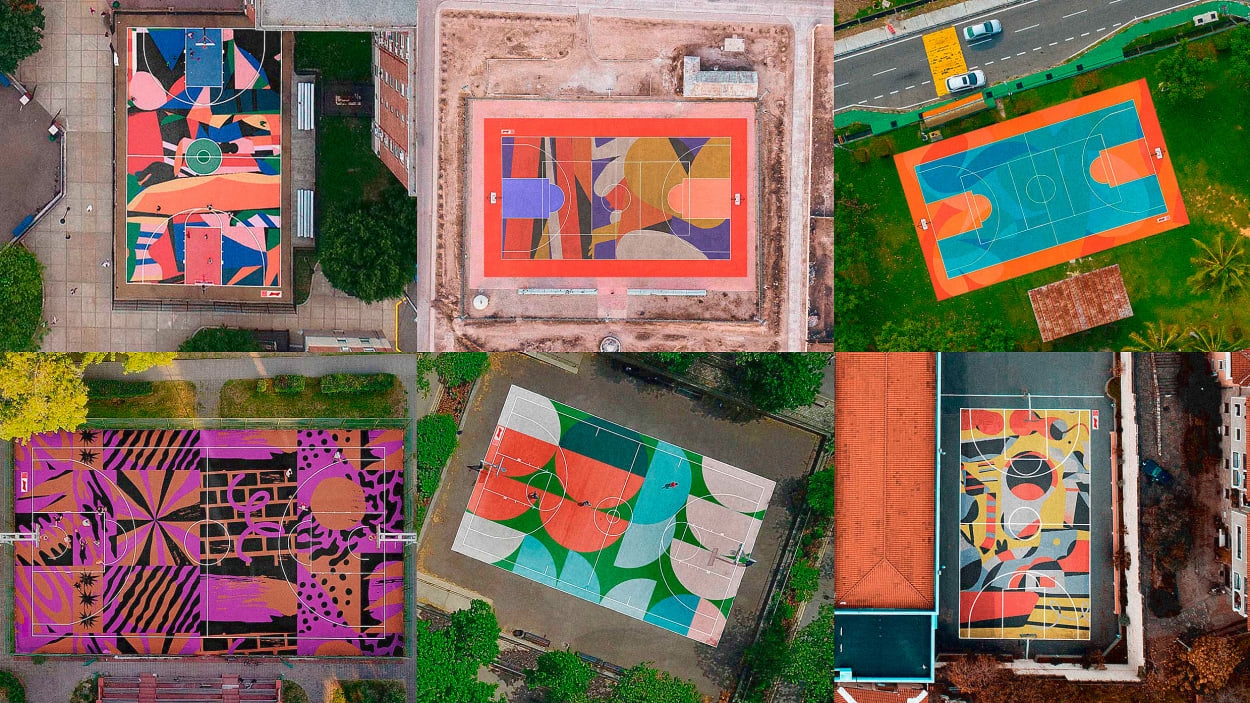How a clever Budweiser ad is helping to save Brazil’s public basketball courts
In one of the latest songs from Brazilian rap star Rincon Sapiência, streetwise lyrics take an unexpected turn to legalese. Sapiência starts out celebrating street culture and recalling his time spent playing basketball as a youth. But then in an interlude, after bemoaning the fact that many street basketball courts in Brazil are being displaced by development, he calls out the country’s cultural heritage laws—specifically articles 1 and 17 of law 25/1937 (as in 1937)—as a tool for their protection.
“A place of public interest with artistic value is considered heritage and cannot be destroyed,” Sapiência intones in Portuguese over the beat. “In other words: There are legal ways to protect the courts from this real estate speculation. Let’s go!”
Hidden in the song are actionable steps that Brazilians can take—and have taken—to protect neighborhood basketball courts from being displaced by buildings.
Sapiência’s song is part of a clever ad campaign from Budweiser, created by the São Paulo-based advertising agency, Africa. Its campaign “Unbreakable Courts” publicizes the country’s heritage laws and explains that any space recognized as a site of cultural significance has some protections from demolition.

The campaign’s website connects communities with artists who can be commissioned to paint murals on the grounds of basketball courts, turning them into artworks, which then affords them protection under the law. “We overcome the law with the law itself, by hacking the system with art,” says Sergio Gordilho, chief creative officer of Africa.

Africa developed an open source method for people to find artists to paint on courts, and then file the paperwork to have them recognized as sites of cultural heritage. “The public who tend to care about and strengthen street culture have in their hands a tool to put this into practice, in an affirmative and transformative way,” Gordilho says.
This unconventional preservation tactic required an unconventional medium, Gordilho says, which is why Africa and Budweiser chose to partner with Sapiência. Tucking indirect instructions for using the law inside the package of a rap song made it much more likely to reach the people most affected by the loss of these basketball courts. “They become leaders responsible for giving a new direction to the street court and preventing it from being destroyed by large corporations,” Gordilho says.
So far, more than 30 basketball courts have been preserved through this campaign, according to Gordilho, but many more are threatened. “The real estate market in Brazil swallows everything that appears in front of it,” he says. “Courts are becoming parking lots, buildings, and avenues. Street basketball courts, which are an urban stronghold of basketball culture far beyond the sport, are directly threatened by this scenario.”

The tactic is also solid material for song, with the underdog finding a way to beat the system and prevail. “The law in the hood is used to repress us inhumanely. But this time it will protect us,” Sapiência raps. “Revitalize the court, eternalize the court.”
(16)



